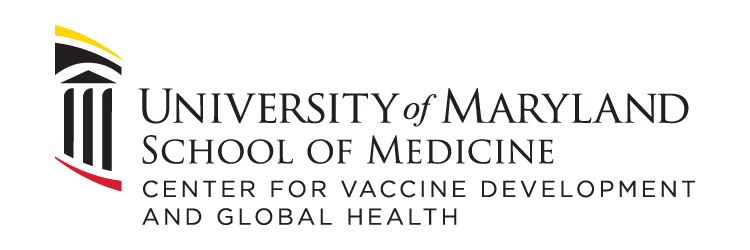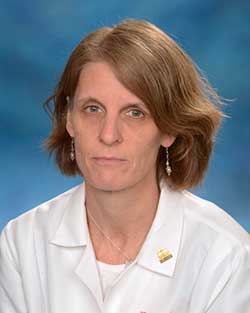August 08, 2022 | January Payne

Two UMSOM faculty members are investigators on research that is likely to inform future decision making on COVID-19 boosters
A study led in part by investigators at the University of Maryland School of Medicine’s (UMSOM) Center for Vaccine Development and Global Health found that although COVID-19 booster vaccinations in adults elicit high levels of neutralizing antibodies against the Omicron variant of SARS-CoV-2, those antibody levels decrease substantially within three months.
“Our research demonstrates that novel Omicron sub-lineages are becoming less susceptible to the original COVID-19 vaccines and supports consideration of more targeted booster options in the future,” said Dr. Lyke.
As part of a “mix and match” clinical trial, investigators administered COVID-19 booster vaccines to adults in the United States who had previously received a primary COVID-19 vaccination series under the Food and Drug Administration’s Emergency Use Authorization. The three COVID-19 vaccines used in the trial were the two-dose mRNA vaccines manufactured by Pfizer-BioNTech and Moderna, and the single-dose COVID-19 vaccine manufactured by Johnson & Johnson.
Some participants received the same vaccine manufacturer as their primary series (a “matched” series), while others received a different vaccine manufacturer (a “mixed” vaccine series). Investigators then evaluated immune responses over time. Preliminary results from the trial, published in The New England Journal of Medicine in January 2022, confirmed the safety of using different COVID-19 vaccines for boosting than for a primary series.
In the new analysis, published in Cell Reports Medicine, nearly all vaccine combinations evaluated elicited high levels of neutralizing antibodies to the Omicron BA.1 sub-lineage, or subvariant. However, immune responses to Omicron in all groups waned substantially, with neutralizing antibody levels decreasing 2.4- to 5.3-fold by three months after the booster.

Additionally, Omicron subvariants BA.2.12.1 and BA.4/BA.5 were 1.5 and 2.5 times less susceptible to neutralization, respectively, compared to the BA.1 subvariant, and 7.5 and 12.4 times less susceptible relative to the ancestral D614G strain. For the group that received the Johnson & Johnson vaccine as primary vaccine and booster, antibody levels against Omicron were low for both.
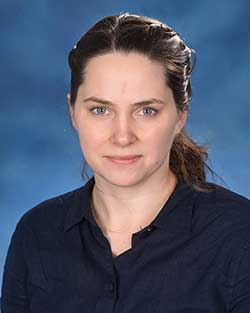
“Our new research emphasizes the need to continually assess and address COVID-19 variants as they develop in order to limit the burden on healthcare systems.”
UMSOM recognizes this need and will play a continuing role in this process over time.
More information about the trial is available at ClincalTrials.gov under study identifier NCT04889209.
NIAID grants supporting this research are: UM1AI48372, UM1AI148373, UM1AI148450, UM1AI148452, UM1AI148573, UM1AI148574, UM1AI148575, UM1AI148576, UM1AI148684, UM1 AI148689 and with support from the NIAID Collaborative Influenza Vaccine Innovation Centers (CIVICs) contract 75N93019C00050.
About the University of Maryland School of Medicine
Now in its third century, the University of Maryland School of Medicine was chartered in 1807 as the first public medical school in the United States. It continues today as one of the fastest growing, top-tier biomedical research enterprises in the world -- with 46 academic departments, centers, institutes, and programs, and a faculty of more than 3,000 physicians, scientists, and allied health professionals, including members of the National Academy of Medicine and the National Academy of Sciences, and a distinguished two-time winner of the Albert E. Lasker Award in Medical Research. With an operating budget of more than $1.3 billion, the School of Medicine works closely in partnership with the University of Maryland Medical Center and Medical System to provide research-intensive, academic and clinically based care for nearly 2 million patients each year. The School of Medicine has nearly $600 million in extramural funding, with most of its academic departments highly ranked among all medical schools in the nation in research funding. As one of the seven professional schools that make up the University of Maryland, Baltimore campus, the School of Medicine has a total population of nearly 9,000 faculty and staff, including 2,500 students, trainees, residents, and fellows. The combined School of Medicine and Medical System (“University of Maryland Medicine”) has an annual budget of over $6 billion and an economic impact of nearly $20 billion on the state and local community. The School of Medicine, which ranks as the 8th highest among public medical schools in research productivity (according to the Association of American Medical Colleges profile) is an innovator in translational medicine, with 606 active patents and 52 start-up companies. In the latest U.S. News & World Report ranking of the Best Medical Schools, published in 2021, the UM School of Medicine is ranked #9 among the 92 public medical schools in the U.S., and in the top 15 percent (#27) of all 192 public and private U.S. medical schools. The School of Medicine works locally, nationally, and globally, with research and treatment facilities in 36 countries around the world. Visit medschool.umaryland.edu
About the University of Maryland School of Medicine Vaccine Treatment and Evaluation Unit (VTEU)
The National Institute of Allergy and Infectious Diseases established the Vaccine and Treatment Evaluation Units (VTEUs) in 1962 as centers of excellence for conducting clinical trials to develop new and improved vaccines and therapies against infectious diseases. For more than four decades, the UMSOM VTEU has conducted hundreds of clinical trials. The VTEU currently funded under grant number is 5UM1AI148689, and the Principal Investigator is Karen Kotloff, MD. The VTEU participates in the clinical development of vaccines that address public health needs in the U.S. and globally. A key requirement is the capability to rapidly enroll and vaccinate large numbers of volunteers into trials according to the quality standards that can support approval and licensure, which has made them a key component of the U.S. response to vaccine development for vaccines. The UMSOM VTEU performs trials of vaccines and treatment that will strengthen the national stockpile of vaccines to prevent infections that could be used as a bioterrorist weapon against the U.S., such as smallpox and anthrax. We investigate new vaccines to address public health problems, such as group A strep and C. difficile vaccines, novel approaches to improve vaccine delivery, such as the FluMist nasal vaccine and the mix and match COVID vaccine approach. We conducted the first clinical study of an edible vaccine in 1998 using genetically engineered plants that contain vaccine antigens that might protect against diarrheal diseases. In keeping with our focus on bringing vaccines to underserved populations globally, we are conducting international studies for vaccines to prevent malaria, meningitis, and many others.
About Infectious Disease Clinical Research Consortium (IDCRC)
The IDCRC, consisting of the Vaccine Treatment and Evaluation Units (VTEUs) and the IDCRC Leadership Group (under award number UM1AI148684), was formed in 2019 to support the planning and implementation of infectious diseases clinical research that efficiently addresses the scientific priorities of NIAID. The consortium includes infectious diseases leaders and clinical researchers from Emory University, University of Maryland School of Medicine, Baylor College of Medicine, Cincinnati Children’s Medical Center and University of Cincinnati, FHI360, Fred Hutchinson Cancer Research Center, Johns Hopkins University, Kaiser Permanente Washington Health Research Institute, New York University, Saint Louis University, Vanderbilt University Medical Center, University of Alabama at Birmingham, University of Rochester, University of Washington, other affiliated sites and NIAID
About the Center for Vaccine Development and Global Health
For over 40 years, researchers in the Center for Vaccine Development and Global Health have worked domestically and internationally to develop, test, and deploy vaccines to aid the world’s underserved populations. CVD is an academic enterprise engaged in the full range of infectious disease intervention from basic laboratory research through vaccine development, pre-clinical and clinical evaluation, large-scale pre-licensure field studies, and post-licensure assessments. CVD has worked to eliminate vaccine-preventable diseases. CVD has created and tested vaccines against cholera, typhoid fever, paratyphoid fever, non-typhoidal Salmonella disease, shigellosis (bacillary dysentery), Escherichia coli diarrhea, nosocomial pathogens, tularemia, influenza, malaria, and other infectious diseases. CVD’s research covers the broader goal of improving global health by conducting innovative, leading research in Baltimore and around the world. CVD researchers are developing new and improved ways to diagnose, prevent, treat, control, and eliminate diseases of global impact. Currently, these diseases include typhoid, Shigella, E. coli diarrhea, malaria, and other vaccine-preventable infectious diseases. CVD researchers have been involved in critical vaccine development for emerging pathogens such as Ebola and Zika. In addition, CVD’s work focuses on the ever-growing challenge of antimicrobial.
Contact
January Payne
Director of Public Relations
University of Maryland School of Medicine
Office of Public Affairs & Communications
c: 443-203-8183
e: january.payne@som.umaryland.edu
t: @januarypayne
Related stories

Tuesday, April 30, 2024
Miriam K. Laufer Appointed Interim Director of the Center for Vaccine Development and Global Health
The University of Maryland School of Medicine (UMSOM) Dean, Mark T. Gladwin, MD, announced that Miriam K. Laufer, MD, Professor of Pediatrics, Medicine, and Epidemiology & Public Health, has been appointed as the Interim Head of UMSOM's Center for Vaccine Development and Global Health (CVD).
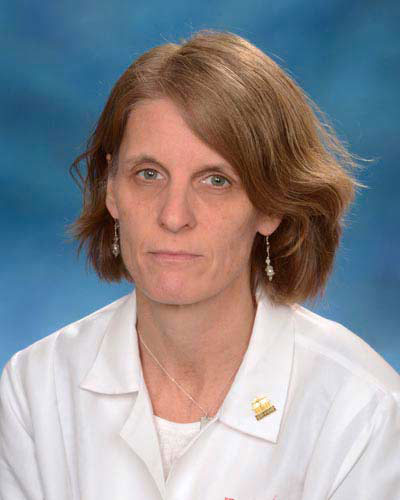
Tuesday, April 30, 2024
A Critical Insight: Dengue Human Challenge Model Prevents Potential Vaccine Missteps
The University of Maryland School of Medicine (UMSOM) Dean, Mark T. Gladwin, MD, announced that Miriam K. Laufer, MD, Professor of Pediatrics, Medicine, and Epidemiology & Public Health, has been appointed as the Interim Head of UMSOM's Center for Vaccine Development and Global Health (CVD).
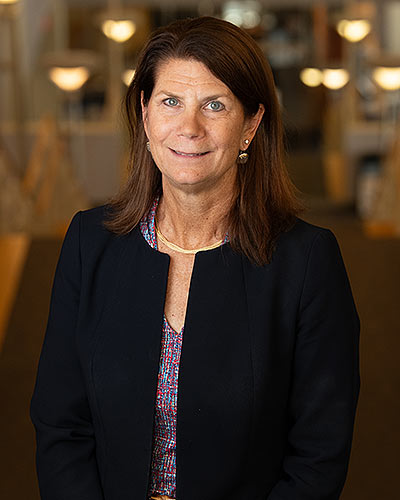
Thursday, March 28, 2024
NIH selects Dr. Kathleen Neuzil as Director of The Fogarty International Center
Kathleen M. Neuzil, MD, MPH, Director of the University of Maryland School of Medicine’s (UMSOM) Center for Vaccine Development and Global Health, has been named the 13th director of the Fogarty International Center (FIC), which is part of the National Institutes of Health (NIH). Dr. Neuzil will be the first woman to hold the permanent directorship since the center’s founding in 1968 and will also hold the position of Associate Director for International Research at NIH.

Thursday, October 12, 2023
UM School of Medicine's Kirsten Lyke Elected as Member of Prestigious National Academy of Medicine
Kirsten E. Lyke, MD, Professor of Medicine and Physician-Scientist at the Center for Vaccine Development and Global Health (CVD) at the University of Maryland School of Medicine (UMSOM), was elected this week as a new member of the National Academy of Medicine (NAM). She was recognized for her pivotal research in emerging infections and human challenge models that have informed and shaped global vaccine and public health policy.

Thursday, January 26, 2023
Small Study Shows Promise for Antimalarial Monoclonal Antibody to Prevent Malaria
A monoclonal antibody treatment was found to be safe, well tolerated, and effective in protecting against malaria in a small group of healthy volunteers who were exposed to malaria in a challenge study, according to new research published in by researchers at the University of Maryland School of Medicine (UMSOM).
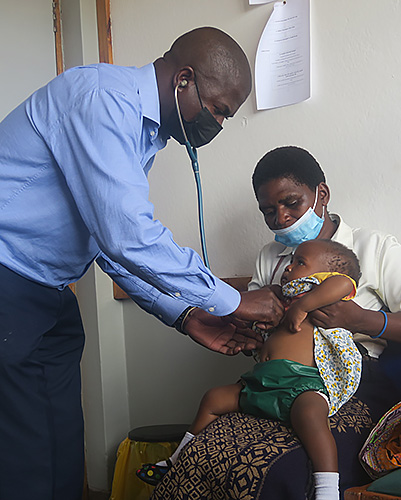
Tuesday, August 09, 2022
New Study Confirms Typhoid Vaccine Safety, Immune Response in Children
A new study, published in The Lancet Global Health, finds typhoid conjugate vaccine, Typbar TCV®, provides immunity for up to 3 years in children as young as 9 months old in Malawi. The research – conducted by the Blantyre Malaria Project, Malawi-Liverpool-Wellcome Trust, and researchers at the Center for Vaccine Development and Global Health (CVD) at the University of Maryland School of Medicine (UMSOM) – found that the TCV vaccine is safe and well tolerated. Importantly, the vaccine can be given to 9-month-old infants at the same time as routine measles-rubella vaccinations without reducing the immune response to either vaccine.
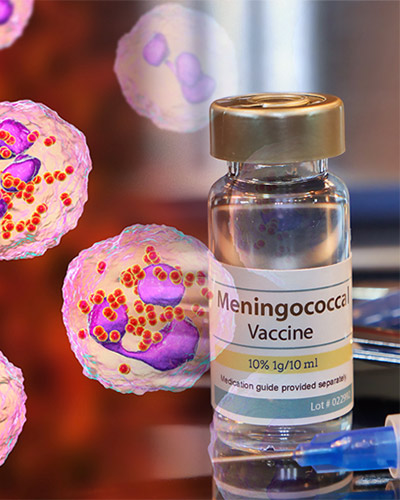
Thursday, March 24, 2022
UM School of Medicine Leads Research to Assess Meningococcal Vaccine for Infants and Young Children in Africa
Researchers at the University of Maryland School of Medicine (UMSOM)’s Center for Vaccine Development & Global Health (CVD) are leading a study to evaluate the use of a pentavalent – or five in one – meningococcal conjugate vaccine (NmCV-5) among infants and young children in the meningitis belt of sub-Saharan Africa. This is the final and pivotal study for World Health Organization (WHO) prequalification of this vaccine, which is the last stage to make the vaccine available for low- and middle-income countries.
